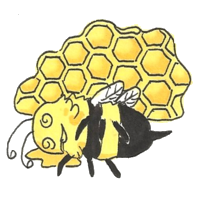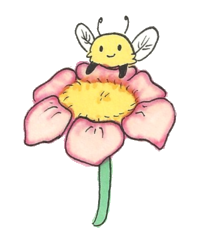A pause in the constant creation machine
How rest is necessary to create
Writing under capitalism is not a delectable treat. Heck, even existing under capitalism is the opposite of the bee’s knees. American society pushes hustle culture in a way that is non sustainable and actively harmful toward its citizens. I’ve literally seen job listings recommending that their applicants stay on call through what are supposed to be their weekends–their resting days–and that their workers stay late to finish projects out of some, I don’t know, masochistic devotion to the job. That’s not “being a good worker”, that’s being abused. American work culture is abusive. The idea that workers people should be “always on” has so permeated the public consciousness that even when we’re not at work, even when we’re supposed to be resting, it can be hard to properly rest. Myself included.
I had a craft post nearly ready to go for the 6th of March, but that evening I was blindsided by nausea that quickly progressed to an absolutely comical level of simultaneous diarrhea and vomiting. Or, it would have been hilarious, except, you know, humans need water to live.
This was the start of a fever-dream evening in which I had Asher drag me to the ER because, from previous life experience, I knew they would have the good anti-vomiting drugs.
It is a genuinely weird experience to no longer have control over your body. I lost five pounds of water in six hours and I kept having to run to the bathroom, but I could barely stand. Obviously I’m still alive now and not vomiting anymore. (Thank you, anti-emetics.) But suffice it to say that the evening was a complete bust in terms of writing productivity.
One of my New Year’s resolutions was to publish a monthly craft newsletter on my blog. This quickly became a hyperfocus for me, and I made a schedule that had two blog posts per month, because why not, right? Isn’t more writing better? But when norovirus kicked my ass, the week following March 6th rolled around, and I still hadn’t posted anything. My schedule was ruined.
As I lay in bed the week after I expelled my liquid life force, I tried to convince myself that this wasn’t failure–that this set back wasn’t “my fault.” After all, seven staff members at my job also contracted the virus. It wasn’t like my laziness had caused me to contract it–it was contagious. Nor was it a lack of diligence that required me to sleep for several days afterward as I slowly made my way back to solid food.
I spent these bed-ridden days ruminating, wondering why I hadn’t revised and published that post earlier in the day before I’d gotten sick. But I hadn’t. I’d pushed it off as something to be done that night after my shift at work. How foolish of me!
Because I had failed to post on time, I kept thinking I should post something else–something like an update or a moral treatise on the unpredictability of the human condition. And I had to internally shake myself because, no, being sick does not mean I should take on extra work. That’s absurd.
Most of the time, I seem to be capable of self-care. I take naps and refill my meds and hydrate frequently. But I do not seem to be capable of the grace that should accompany the need for self-care. Even at the brink of death a health crisis, for whatever reason, my brain does not understand that it’s okay to need a break or to miss a deadline.
I’ve grown up feeling like failing isn’t acceptable. Whether because of capitalism or the school system or protestant work ethic, I don’t feel like I’m allowed to “not turn in the assignment” or take a break or stop. Ever. I go to work and then I come home and work there, too–whether on writing, or on house cleaning, or on the medley of errands and bureaucratic paperwork necessitated by adult life in 2022. Even when “relaxing,” the books I read, the shows I watch, and the sites I browse are all supposed to be some kind of path toward success in the industry of genre fiction.
But where is success? Is success a neon diner sign lit up at the end of the line, reflecting off old linoleum? Is a pile of money under it? Safety? The love and respect of friends? A legacy? Or is success stopping when I’m tired, before I start to hate the writing I’m passionate about? Is it being warm and still for just one moment? Is success the cessation of fighting against the riptide so that I can move with the shore instead of being pulled out to sea?
I’ve never run a marathon before, because I am extremely non-athletic, but I’ve heard that there are rest stops. These stations have everything from water and food to medical aid and cheering crowds to ease the toll of the marathon on each runner. Hosting a marathon without these things would be reprehensibly dangerous. Imagine a marathon where none of the runners could hydrate! That’s actually how the original legend goes that gave the marathon its name: This Greek messenger, Philippides, ran a great distance without stopping to tell the people of Athens that they defeated the Persians at the Battle of Marathon. He didn’t stop to hydrate, and you know what happened to him? He died. Hydrate or die-drate, bitches.
And yet. A novel is a marathon. A writing career is a marathon. But where are our rest stops?
Most people don’t treat using their brain the same way they treat using their body. They act like intense focus or creative exercises aren’t as strenuous as physical ones. But writing and creating uses energy, and that energy isn’t just magically replenished when we demand it to be. It needs to be refilled–partially by rest.
Sometimes life kicks your ass and you’re forced to rest. Progress can be like the growth of a tree, in which sometimes there are bursts of new growth, but other times there isn’t enough water, or light, or you get attacked by bugs. In this way, writing also gets put on pause by the multitude of lemons that life incorrigibly gives.
But even better than resting when you’re forced to is to rest intentionally. Good quality work requires good quality rest. Failing to realize this is what led to the absurd situation of me being disappointed that I wasn’t blogging while I had norovirus.
I think of the ant, who knows to prepare for winter by storing up food during the summer. We are taught to think of the labor as the preparation, but, in some ways, the rest during winter is also preparing for the work of the summer. There can’t be vitality without rest. There can’t be growth without recuperation. In this way, rest and labor should be cyclical rather than the one-way devotion to production that late stage capitalism frequently demands.
I desire to rest more intentionally. I want my brain to feel clear and even and ready to roll when I actually get myself to sit down to write.
There was a time this summer when I literally spent time Googling “how do I defragment my brain?” and I think that this, most of all, proves that there is not enough intellectual rest in my life.
So how is it done? You know what time it is! It’s time for fun activities!
Fun Activities
Have spooky quiet meditation. Spooky quiet meditation, or lying down and doing nothing for 10-15 minutes in a dark room, has been shown to boost memory. I think this is probably closest to that “brain defragmentation” I was looking for last summer. Just a nice, quiet thing to do with no errands or tasks to clog up my brain
Forest bathing is also an option. I think the name “forest bathing” is silly, but it just means “being in nature.” I like trees an awful lot, and spending time near plant life is supposed to boost creativity and lower anxiety, so I say bring it on
Improve sleep hygiene. Sleep hygiene comprises the habits and environment you cultivate before bedtime. I’m pretty good at going to bed at a similar time each night, but my dream of reading before bed rather than playing phone games has not yet happened. This is something to work toward
Actually schedule rest. How often when making to-do lists do we add “take a nap” or “relax for a while?” Never! But a day is a finite length, and in order to accommodate rest among the various working tasks, sometimes that requires planning
These tools, I think, will be good for me to cultivate a better life-life balance. If I’m resting, I’m resting, and not in some in-between state of feigning rest while actually completing tasks. Hopefully this clearer boundary of intentional rest will allow me to have more focus and creativity when I actually do attempt to use my brain.








Thank you for sharing this! It was eerily timely for me since I've actually put writing on the back burner (gasp!) for the last month while going through the exciting yet terrifying process of buying a house.
I'm slowly coming back to writing now that the big task itself is done, but I've been thinking about the question of, "When am I supposed to be resting now that I have added yet another thing to my plate?"
I haven't come up with any magic solutions or anything, but I felt better just reading all of this, knowing I'm not alone. Thank you again!